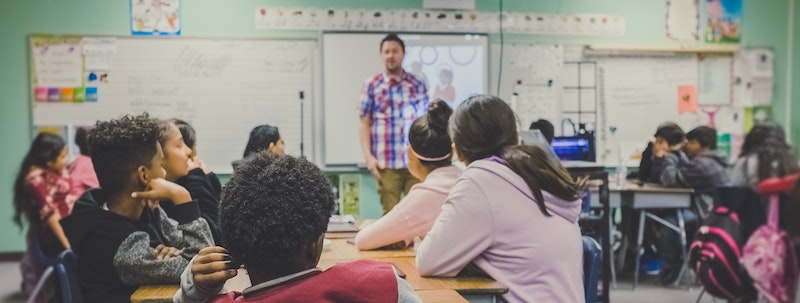Are you concerned with what kids are being taught about agriculture in schools?
Me too.
I’ve had rancher friends share stories about their child’s teacher telling them they shouldn’t eat meat, and how ranching is bad for the environment, among other negative things that are highly incorrect. Educators, who aren’t agricultural experts, share disinformation regarding an industry that more people, including kids, should be better educated in.
My issue with teachers who share polarizing information about agriculture is that they are taught, from the beginning of their teaching education, to accept everyone from every background regardless of lifestyle. Teachers are there to accept and encourage critical thinking. They are not there to bash agriculture or meat-eating, especially if they are not from the industry. Doing so could cause eating disorders among students who are still learning what a healthy lifestyle consists of and are extremely fragile to bullying and peer pressure. Additionally, there is no way for a teacher to know a student’s background, whether or not their family can afford certain foods, or come from the ag industry. Discussing the controversies in agriculture can be beneficial, but if done incorrectly can cause children to be resentful and ashamed of how their family makes a living.
This is why my mission as an English teacher is to help bridge the gap between farmer, rancher, and consumer within my curriculum.
Our educators are supposed to inspire and provide our students with the critical thinking abilities needed to make decisions based on fact, and not entirely emotion.

My students will appreciate the differences in our diets, our bodies, and our lifestyles. They will be able to speak their minds without facing criticism from someone with different perspectives. They will be able to research and write about a topic using unbiased, science-based resources. They will learn how to fish out the bad apples on Google and make arguments using intelligent debate skills. And most of all, they will leave my classroom with a true understanding of the beef and cattle industry.
Our educators are not supposed to shame people for who they are, they are supposed to teach acceptance and team playing, and a willingness to learn. When they shame our kids into eating a certain way or bashing agriculture in any way, they are teaching students not to have an open mind, may unknowingly encourage body image issues and eating disorders, and shame students whose families are in agriculture.
Here’s my promise to you, parents, and beef industry members, that my students will never be told beef and ranching is bad. They will, however, know how to constantly work towards a better future with agriculture on our side, they will be told that they have a choice, and should always fight for that choice(and others’ choices), and should never shame anyone, or feel ashamed for their lifestyle or dietary choices. Whatever choice they make, I want to be there to support them and I want to armor them with all the information, rather than just bits and pieces they pick up from media and non-experts.
I believe my best advocacy work won’t come from the articles I write, it will come from the discussions I have with the young minds filling my classroom in the fall.







